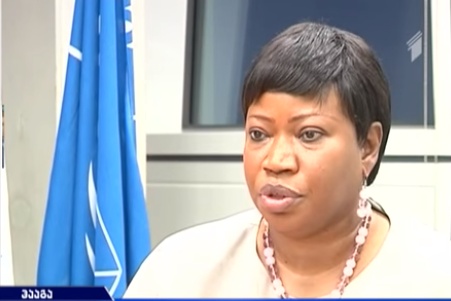ICC: We reveal individual criminals not countries

The International Criminal Court (ICC) is not tasked to solve a dispute between countries but reveal concrete individuals who committed a crime.
These words were spoken by The Hague prosecutor Fatou Bensouda in an interview with Georgia’s Public Broadcaster.
Bensouda was authorised to investigate possible war crimes committed during a conflict between Russia and Georgia in 2008.
In the interview, she said her aim was to find specific individuals from either side who had committed crimes and to ask for their punishment.
"The Court is not to solve a dispute between the two countries. Our mandate is not even to solve the territorial dispute. This is not what we are busy with,” the prosecutor said.
"Our goal is to find an individual person responsible for each crime committed during the conflict. For this, we need strong proof. Then we will want to punish those people who had actually committed crimes.”
Once criminals are revealed, prosecutor Bensouda will ask the court to issue an arrest warrant in their name.
"This might be one person or more,” she said.
At this stage, the prosecutor was busy selecting members of her team who will later be in charge of the investigation. The team members will be authorised to travel to Georgia, Georgia’s breakaway Tskhinvali (South Ossetia) region and Russia to gather any information needed for the investigation.
All materials gathered during the investigation will be confidential until Bensouda publishes her assessment of the situation and asks judges to arrest those who were found to have committed crimes.
When assessing how much time this will take, Bensouda said it could be a year, three years or "as much time as the investigation needs”.
The prosecutor said her office would send a request of cooperation to Georgia, its breakaway Tskhinvali and Russia. She believed all of the sides would cooperate with the investigation but she also said if any side refused to cooperate the investigation would continue anyway.
She added if a crime was committed in any country and no one attempted to investigate it, then it was ICC who took action.
 Tweet
Tweet  Share
Share